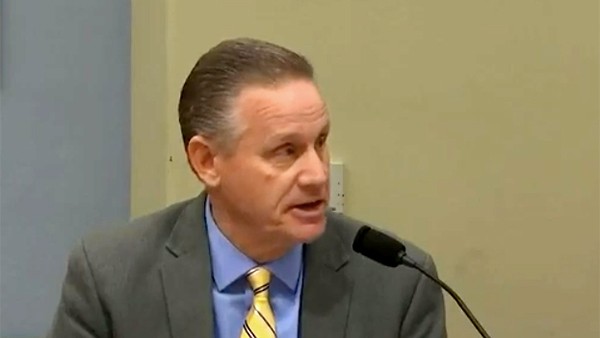Cornell expert urges Congress to reform infrastructure policies
By James Dean
Ever pulled into an interstate highway rest area at dinner time to find nothing but restrooms, some vending machines and a map?
Federal restrictions dating to the highway system’s origins more than a half-century ago have prevented states from developing some full-service rest stops with restaurants and concessions – a potential revenue source that could help states operate and maintain aging highways.
Eliminating that restriction is one of numerous reforms Congress should consider to ensure more cost-effective and timely delivery of badly needed infrastructure projects, Cornell policy expert Rick Geddes testified Sept. 25 to the U.S. House Budget Committee.
“The main challenge the United States faces today is inadequate funding,” said Geddes, professor of policy analysis and management in the College of Human Ecology and founding director of the Cornell Program in Infrastructure Policy. “Declining revenue from the federal gas and diesel tax is devolving responsibility for funding to state and local governments by default.”
The nation earned a D-plus grade on the American Society of Civil Engineers’ 2017 Infrastructure Report Card. Restoring infrastructure quality to desired levels would cost $2 trillion more than currently projected funding levels over the next decade, according to the Budget Committee.
Congress is in the process of reauthorizing the multibillion-dollar Fixing America’s Surface Transportation Act, which expires in 2020.
At the House Budget Committee hearing titled “America’s Infrastructure: Today’s Gaps, Tomorrow’s Opportunities, and the Need for Federal Investment,” Geddes testified that the federal Highway Trust Fund – a reliable funding source for decades – is no longer sustainable.
Congress has not increased the federal gas tax since 1993, and like most state gas taxes, it is not indexed to inflation. At the same time, cars have become more fuel efficient and electric vehicles pay no gas taxes at all.
Outdated policies and new technologies are putting strains on the state and local governments that actually own and maintain the highway system, Geddes said, and are creating inequities between poor and wealthier drivers.
What’s the alternative? Geddes advised Congress to emulate the state of Oregon, which has experimented with user fees – charging drivers by the mile instead of by the gallon, a measure called Vehicle Miles Traveled.
“It divorces the use of the road from the fuel the vehicle uses,” he said.
Additional policy reforms Geddes recommended included:
- Encourage more Public Private Partnerships, or PPPs, that could leverage private investment and stretch tax dollars further. “Many other countries including Canada, Spain, France and Australia are decades ahead of the United States in PPP use,” Geddes said. One incentive to bolster such partnerships would be to eliminate a $15 billion cap on tax-exempt private activity bonds, and approve their use not just for transportation but all public-use infrastructure projects.
- Encourage state and local governments to embrace innovative management techniques that can squeeze more value from existing infrastructure. That’s the idea behind updating old laws to allow more commercial activity at interstate highway rest stops. Another simple example: relocating a salt shed from a high-value property to one of lesser value, freeing up the old site for lease or sale.
- Incentives should encourage faster adoption of new technology, Geddes said, and more federal funds should be directed toward research of tomorrow’s technologies.
- Support for President Donald Trump’s “One Federal Decision,” which aims to speed up environmental permitting of major infrastructure projects. A lead agency would oversee the process, and others would review potential impacts concurrently rather than sequentially. Decisions should be made within two years, Geddes said. “Either permit the project or don’t, and have a target,” he said. “It’s deplorable how slow the United States is to get big, important projects delivered – even small projects.”
Regarding spending priorities, Geddes said the nation must address a major problem with deferred maintenance that leads to costlier upgrades over the long term.
“We don’t need another interstate highway system,” he said, “we need to take care of the one that we have.”
Media Contact
Get Cornell news delivered right to your inbox.
Subscribe

